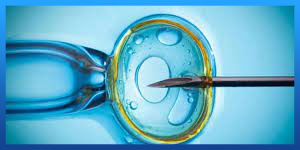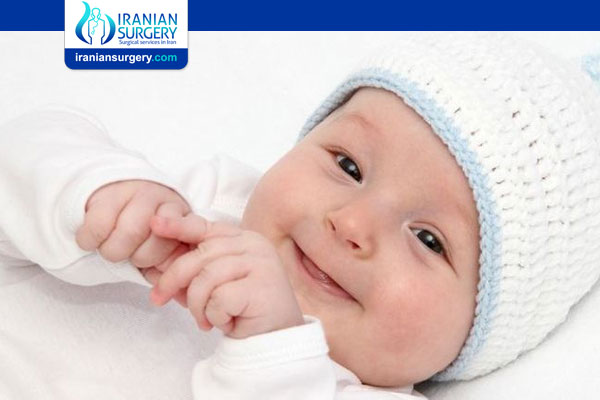The Advantages and Disadvantages of IVF
The advantages and disadvantages of IVF are as follows:
Advantages of IVF
. IVF helps many patients who would be otherwise unable to conceive. The ultimate advantage of IVF is achieving a successful pregnancy and a healthy baby. IVF can make this a reality for people who would be unable to have a baby otherwise:
. Blocked tubes: For women with blocked or damaged fallopian tubes, IVF provides the best opportunity of having a child using their own eggs.
. Older patients/ patients with a low ovarian reserve: IVF can be used to maximise the chance of older patients conceiving. We use Natural IVF to focus on quality of eggs, rather than quantity.
. Male infertility: Couples with a male infertility problem will have a much higher chance of conceiving with IVF than conceiving naturally. We have a number of laboratory techniques to facilitate this including intra-cytoplasmic sperm injection (ICSI). We also have an experienced consultant urologist to advise men with fertility problems.

. Unexplained infertility: 1 in 6 couples will suffer fertility problems and sometimes these remain undiagnosed after investigation. These patients may benefit from intervention.
. PCOS: Polycystic ovary syndrome is common condition in which there is a hormone imbalance leading to irregular menstrual cycles. IVF has proved very successful in patients with PCOS, who will not conceive with ovulation induction.
. Endometriosis: Patients with endometriosis, where parts of the womb lining grow outside the womb, may like to try IVF, as it has proved successful in this group.
. Premature ovarian failure: Women with premature ovarian failure or menopause can have IVF treatment using donor eggs, which typically has high success rates.
Read more about : IVF process atart to finish
. It has been used for a long time and has a safe track record. The first ‘IVF baby’, Louise Brown, was born using natural IVF in 1978. Since then, the technology has advanced, and techniques refined in order to create safer and successful treatment. We use only the safest forms of IVF with fewer drugs in order to reduce the risk of side effects such as Ovarian Hyperstimulation Syndrome (OHSS).
. IVF can be more successful than IUI and other forms of assisted reproductive technology. IVF success rates have been increasing since its conception, thanks to technological advances. Although IUI and other forms of assisted reproduction technology can be successful for some patients, on the whole they have not undergone the same level of improvement, and do not currently have as high success rates. IUI with donor sperm can however be a useful first option in single women and same-sex couples.
. It can help single women and same-sex couples. For single women or same-sex couples who wish to have a child, IVF can provide a great opportunity for helping them to become parents if IUI has not been successful. IVF with donor sperm can help potential patients achieve this goal.
. IVF can help to diagnose fertilisation problems. In some cases of unexplained infertility, there could be a problem with fertilisation. Cases such as these may not be diagnosed until fertilisation is attempted in the laboratory. Although this would be a disappointing outcome, it is useful to be able to uncover such problems so that solutions could be reached for future treatment with ICSI.
. Unused embryos can be donated to research or another couple. If you are lucky enough to have embryos to spare, these can be used to help other people and even save lives. With the permission of the biological parents, unused embryos can be donated for research purposes, or to another couple to enable them to have a child.
. Embryos can be used to screen for inherited diseases. For individuals who are known carriers of genetic disorders such as cystic fibrosis, Huntington’s disease and muscular dystrophy, IVF with pre-implantation genetic diagnosis (PGD) is one of the most reliable ways to ensure that a child conceived will not suffer from the disorder. Pre-implantation genetic screening (PGS) can improve the chances of a successful outcome, as it screens embryos for chromosomal disorders such as Down’s syndrome. Both of these techniques are available at our clinics.
Read more about : Ivf cost calculator
Disadvantages of IVF
. An IVF cycle may be unsuccessful. The success of IVF is not guaranteed, and patients often have to undergo more than one cycle of treatment before they are successful. This naturally varies woman to woman, and a fertility specialist will be able to give a more accurate and personalized likelihood of success. It is important to be realistic but positive about the chances of success.
. There may be associated side effects and risks. As a medical treatment, IVF comes with a small chance of developing side effects, the most severe of these being severe ovarian hyper-stimulation syndrome (OHSS). Fortunately, the use of fewer or no drugs in natural and mild IVF cycles means that the already small likelihood of developing unwanted risk of OHSS is dramatically decreased or eliminated.
. Multiple pregnancy. In IVF treatments, there is often more than one embryo put back into the uterus, and this leads to a higher likelihood of multiple pregnancy; around 20-30% of IVF pregnancies can result in multiple pregnancies. Multiple pregnancies do carry associated health risks to mother and baby: there is an increased chance of premature labour, miscarriage, need for caesarean, stillbirth and infant health problems with multiple pregnancies. It is important for all fertility clinics to have robust single embryo transfer policies, to avoid the risks of multiple pregnancy.
. There is a slightly higher chance of ectopic pregnancy. With IVF treatment, the risk of an ectopic pregnancy doubles, to 1-3%, particularly in women with damaged fallopian tubes.
Read more about : Is the IVF procedure painful?
. There is evidence that high oestrogen levels associated with high stimulation IVF can increase the risk of prematurity and low birth weight in babies. There is growing evidence that giving high stimulation during IVF increases the chance that a baby is born prematurely and with lower birth weight. This has been linked to long-term health problems for the child. It is theorized that high oestrogen levels can affect the intra-uterine environment. With drug-free and low drug approaches, it has been observed that babies born are more likely to be born at full term and with a higher birth weight than those born through high stimulation IVF associated with high oestrogen levels. This is one of the reasons why we are committed to Natural and Mild IVF, as we believe that the success of treatment is not just a live birth, but is a healthy full term live birth.
Read more about : How many days after period is frozen embryo transfer?
. IVF treatment can take an emotional/psychological toll. Going through IVF treatment can be a highly emotive and stressful experience. For patients undergoing treatment, it can be physically and emotionally demanding. For partners it can be difficult to watch a loved-one go through a stressful experience. It is important to prioritize your psychological health, and this is also good for the health of the body. Our short, lower-drug protocols should help to minimize the amount of stress.
. IVF treatment can be expensive. IVF treatment is not cheap, and after paying for medication and blood tests, the costs can quickly mount up. It is good to have a clear idea of the costs involved before starting treatment, and to have your finances in order before beginning. With fewer drugs, the cost of a cycle is reduced.
. Some patients may be concerned about ethical issues. The idea of selecting some embryos and potentially discarding others may not sit well with everybody. Before starting treatment, consider your own stance and what you would be comfortable with. If you are uncomfortable with the creation of multiple embryos, we can support your choice by using Natural Cycle IVF, or by freezing additional eggs rather than fertilizing them to create embryos.
Source:
. https://www.createfertility.co.uk/blog/the-advantages-and-disadvantages-of-ivf


